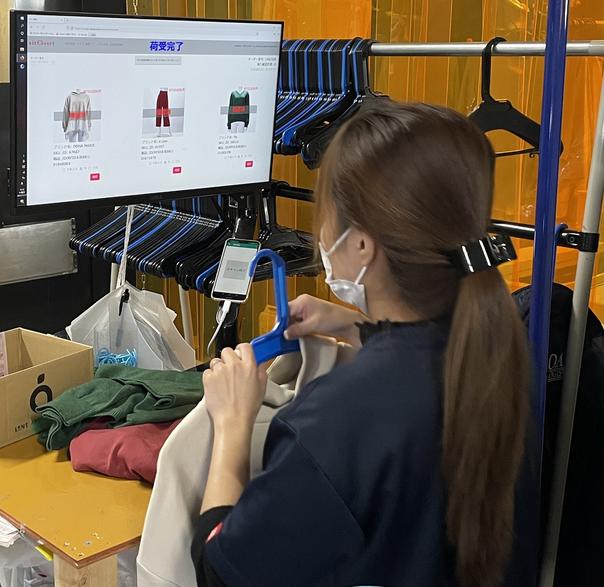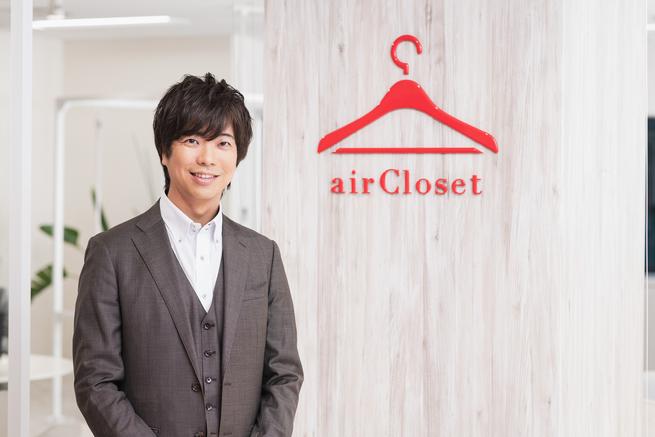"Beats Flex-fragment design special edition" is now on sale on Apple's official website
11/03/2022

AirCloset (Minato-ku, Tokyo) started the fashion sharing service "airCloset" as early as 2015, while there are many sharing services such as passenger cars, bicycles, and home appliances. The company achieved its first profitability since its founding in 2009, but it was supported by its proprietary "circular logistics." By introducing RFID tags for item management in 2019, work efficiency has improved and costs have been reduced. Many companies outsource logistics to reduce development time and costs, so why did the company stick to building its own system? (Interviewed by Azusa Kun)
With this service, 3 to 5 clothes arrive every month according to the plan selected by the user, and after wearing, they are returned as they are without washing. The company manages warehouses other than cleaning in-house. "(Similar service providers) often customize existing logistics systems, but I felt that there was a limit to trial and error and customization of fashion sharing service specifications," said Satoshi Amanuma. Look back. Also, from the time of its founding, it was assumed that the built system would not be used only by the company, but would be made into a platform and released to other companies. It took two years to develop.
Furthermore, in 2019, RFID tags were introduced to reduce the workload. Until then, it was necessary to cover clothes with a bag with a barcode and link it with the data, and then remove the bag before and after cleaning and at the time of delivery. In addition, when the data was returned from the user, the data was visually checked against the clothes. "The development of RFID that can withstand cleaning, the unit price of RFID itself has decreased, the amount of products handled by our service has increased, and it is expected that the effect will exceed the introduction cost," (CEO Amanuma).Currently, when new clothes arrive, tags are attached and numbers are assigned, and initial data such as images and dimensions are registered. In addition to displaying the storage location in the warehouse at the time of delivery, the work of linking data and clothes is completed simply by scanning the RFID. At the time of warehousing, the bags returned by the user can be scanned together. As a result, logistics operation costs have been reduced by 12%, and human workloads such as visual confirmation and attachment / detachment of bags and tags have been eliminated.

"Sharing services have expanded beyond fashion, and user awareness has improved. On the other hand, logistics and operations determine the continuation of services. Service closure is that they cannot withstand their maintenance costs. It accounts for many of the reasons "(CEO Amanuma). Therefore, by providing the logistics platform built by the company, we would like to solve the problems of companies and brands that are newly entering the fashion sharing service. We are conducting preliminary demonstrations in a collaboration plan (*) with four apparel brands that started in January, and aim to commercialize it within 22 years by repeating hearings with businesses in the future. The basic mechanism is that it can be used simply by providing the product, but it is also envisioned for customization such as "I want to use my own item management data."
The Korona-ka has caused a decline in the fashion industry as a whole. According to Yano Research Institute, the total domestic apparel retail market size in 20 years decreased by 81.9% from the previous year. The company also said, "Although it is growing on a sales basis, the number of new users is growing less than expected," said Amanuma CEO. On the other hand, there is a part where the feature of the sharing service that allows you to try many trendy clothes while staying at home matches the life of Korona-ka. In fact, even when the collaboration plan with the brand was demonstrated in advance, many users used it because of the need to "challenge new clothes." In addition, it is possible that fashion sharing services will expand in the future from the perspective of sustainability. In fact, "more and more users are arguing that sustainability is a benefit," said CEO Amanuma. Furthermore, in response to the growing awareness of business operators such as apparel manufacturers and brands, the company is promoting the commercialization of external distribution platforms to offer sharing services as one of the sustainability measures of the apparel industry. I will make suggestions.
(*) A single brand rental service "Brand Select" option is newly established in the monthly fashion rental service "AirCloset".
New Switch Original
COMMENT
At AirCloset, I had the image of developing "brilliant" services such as professional coordination, fashion diagnosis, and collaboration with brands. However, there were steady efforts behind the scenes, such as building a distribution system and improving usability such as ease of return. I realized that it is only with these two wheels that the service can be expanded.